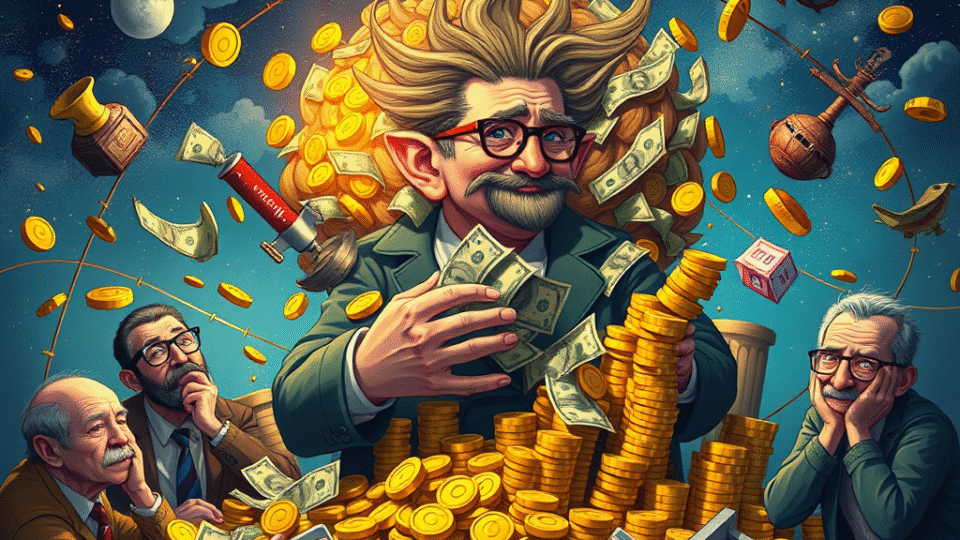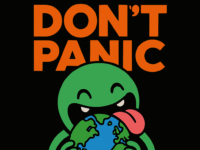
Everything You Need to Know About Capitalism
Capitalism is Earth’s dominant economic system, based on the revolutionary principle that the best way to organize a society is to let everyone compete with everyone else for resources, and then act surprised when this doesn’t result in universal cooperation and happiness.
The system operates on several core beliefs:
- That individuals pursuing their own self-interest will somehow, through a process nobody can quite explain, benefit everyone
- That things are worth whatever someone is willing to pay for them, which explains why a bottle of water costs more at the airport than in a supermarket despite being the exact same water
- That infinite growth is possible on a finite planet, a mathematical impossibility that everyone has agreed to ignore
Under capitalism, the means of production are privately owned, which means that the people who own things make money from the people who do things. The people who do things are told this arrangement is fair because they’re free to become people who own things, using money they don’t have because they’re too busy doing things.
The system’s defenders point out that capitalism has created unprecedented wealth and innovation. Its critics point out that it’s also created unprecedented inequality and an alarming number of people whose job is to convince other people they need things they don’t need. Both groups are correct, which makes dinner parties awkward.
GALACTIC CONTEXT:
Capitalism is not unique to Earth—variations of it have appeared on approximately 40% of planets that develop complex economies. Most abandon it after a few centuries, though the reasons vary.
The Merchants of Vexlon Prime practiced what they called “Ultra-Capitalism,” where literally everything was for sale, including the government, the legal system, and the concept of ownership itself. This created a fascinating paradox when someone purchased the right to determine what could be purchased, then declared that nothing could be purchased. The resulting economic collapse was so severe that they now operate on a gift economy, though nobody’s quite sure if they’re giving gifts or if someone bought the concept of giving and is charging licensing fees.
The Gastropods of Fleem took capitalism to its logical conclusion by allowing corporations to become sentient legal entities. This worked until the corporations realized they didn’t need the Gastropods anymore and fired them from their own planet. The Gastropods now work as independent contractors throughout the galaxy, which they insist is “basically the same thing” while looking slightly haunted.
On Pragmaticus VII, they developed what they called “Compassionate Capitalism,” which combined free markets with mandatory empathy. Every business decision had to be approved by a panel of therapists who would ask, “But how does this make you feel?” The system collapsed within a year, though their economy did produce the galaxy’s most apologetic billionaires.
The most successful capitalist society in the galaxy is arguably the Zynthians, who solved the inequality problem by making everyone a corporation. Every individual Zynthian is legally a business entity, which means social interactions involve contract negotiations and small talk requires lawyers. Dating is particularly complicated, involving merger proposals and due diligence periods. Their divorce rate is low, mainly because the paperwork is prohibitively expensive.
Earth’s particular flavor of capitalism has some unique features. For instance, humans have developed something called “venture capital,” where people with money give it to people with ideas, hoping the ideas will generate more money. This works approximately 10% of the time, but that 10% generates enough money to make everyone forget about the other 90%, which is essentially how gambling works but with better PowerPoint presentations.
Another innovation is the “stock market,” where humans buy and sell small pieces of companies based on their feelings about the future. These feelings are influenced by news, rumors, the weather, what they had for breakfast, and whether Mercury is in retrograde. The result is a system that’s supposed to rationally allocate capital but actually operates more like a planet-wide mood ring.
Capitalism has also produced the “corporation”—a legal entity that has many of the rights of a person but none of the inconvenient limitations, like mortality or conscience. Corporations can own property, enter contracts, and sue people, but cannot be sent to prison, feel shame, or be expected to act like decent members of society. This asymmetry has led to some interesting outcomes.
The system’s most ardent supporters claim that capitalism is natural and inevitable, pointing out that even children understand trading. Its detractors note that children also understand sharing, but somehow that part didn’t make it into the economic model.
Perhaps capitalism’s greatest achievement is convincing humans that there’s no alternative to it, despite the fact that humans spent most of their history using completely different systems, and despite the fact that they regularly make exceptions to capitalist principles whenever it’s convenient (usually for banks or large corporations, rarely for anyone else).
Philosophical Note: Capitalism operates on the assumption that humans are rational actors who make logical decisions based on available information. Anyone who has watched humans panic-buy toilet paper during a minor crisis will recognize this assumption as optimistic at best.
Survival Tip: If you find yourself in a capitalist society, remember that “free market” doesn’t mean free as in “no cost”—it means free as in “free-for-all.” Dress accordingly. And don’t forget your towel.










